The best iPhone games 2023
The best iPhone games in the App Store right now
Our favorite iPhone games based on anagrams, crosswords, and generally doing clever things with letters.
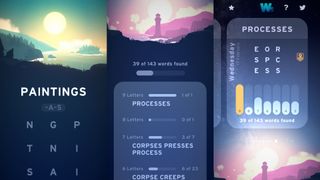
Wordsmyth
Why you can trust TechRadar
($2.99/£2.99/AU$4.49)
Wordsmyth is at its heart a straightforward anagrams game. Like a stripped-back Boggle, it has you find words from a jumble of letters, but gives your brain a more gentle workout than many of its contemporaries.
The visuals and audio set the scene for a contemplative experience, but it’s more than that. The interface is tactile and elegant. As you play, you can bring up tips that help you get at more words – with no penalties. At any point, you can check the words you’ve found and how many more are awaiting discovery.
A new puzzle appears daily, and the game keeps your most recent seven to dip back into. One for relaxing with, then, rather than frantically working against a timer or trying to one-up an opponent.
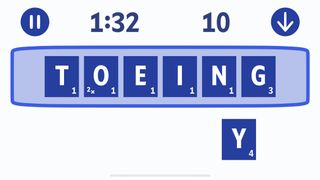
Up Spell
($1.99/£1.99/AU$2.99)
Up Spell is a no-nonsense speedrun word game. You start with a set of letter tiles at the bottom of the screen and drag them to a tray. Letters can be rearranged and the tray lights up when a word is formed. Tap it to dismiss the word and get new letters.
All the while, a clock ticks down, but Up Spell wants to lessen friction and frustration. You can at any point trash your letters. If the tray is full of garbage, you can empty it with a tap. And the lexicon is intentionally flexible to encourage fun rather than fussiness.
A duel mode, where you send a link to a friend so you start with the same letters and can compare scores, adds extra value to a sparse but effective and engaging spell ’em up.
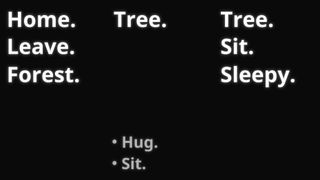
Ord.
($1.99/£1.99/AU$2.99)
Ord echoes ancient text adventures - or those branching-narrative gamebooks where the story progresses when you make a decision. Here, the narrative is pared back to just three words: a set-up, the choice you make, and the resolution. In the quest story, for example, you’ll be told ‘lake’ and have the options ‘swim’ and ‘fishing’. Naturally, one of those might have a single-word sticky end.
This all might sound reductive - even pointless - but it’s interesting how much atmosphere is built up in these tiny snatches of story, and tricky to find all the endings. Short jingles and subtle visual effects add further atmosphere as your mind fills in the blanks, constructing its own details to flesh out the minimalist stories.
The basic nature of Ord. does leave a question mark around its longevity. But for the small outlay, it’ll splash a grin across your face during your first few dozen quests.
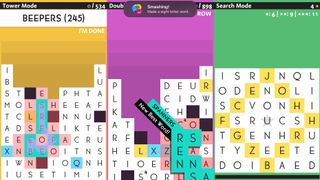
SpellTower+
(free + $4.99/£4.99/AU$7.99 IAP)
SpellTower+ harks back to classic word games – paper-based crosswords and word searches you’d find in newspapers – but by mixing this up with puzzle-oriented arcade fare, it gives you something fresh.
In Tower mode, you face a stack of letters, which vanish when you tap out a snake-like word. Gravity then takes over, and you realize planning is vital to ensure letter tiles aren’t left stranded.
Mastering this mode serves you well when you venture to others. Some add new rows over time or when submitting a word. Search instead refines Tower to a merciless point, giving you just one chance to construct a word using a special letter.
For fans of SpellTower, this release is more a case of subtle evolution than radical revision. Even so, SpellTower+ is – like the original – among the very best word games on iPhone.
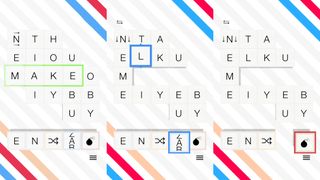
Word Forward
($2.99/£2.99/AU$4.49)
Word Forward injects strategy into the tried-and-tested formula of finding words in a grid. Rather than having you maximize your score from a randomized set of tiles, Word Forward demands forward thinking and precision. Each challenge is bespoke, and you must clear the entire grid.
Often, making big show-off words can later leave you stranded. But chipping away at the grid with very small words won’t build your collection of bonus tiles. And those can be vital, enabling you to swap letters, blow one up, or shuffle whatever’s left on the grid.
The interface is sleek, but it’s the mechanics here that take hold. Your brain gets more of a workout than your vocabulary, not least when you try to complete each puzzle without using special tiles, in order to win a bonus star.
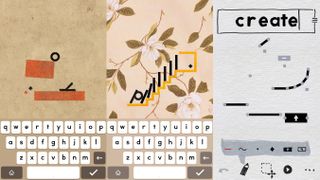
Supertype
($1.99/£1.99/AU$2.99)
Supertype is a word game more concerned with the shape of letters than the words they might create. Each hand-designed level finds you staring at a setup of lines, dots, and empty spaces in which to type. Tap out some letters, press the tick mark, and everything starts to move.
The aim is to get the letters you type to the dots. In some cases, the solution may be fairly obvious – for example, placing a lowercase l on each ‘step’ towards an out-of-reach dot at the top of a staircase, then having a p at the start tip over to set everything in motion.
More often, you’ll be scratching your head, experimenting, trying new approaches, and then grinning from ear to ear on cracking a solution.
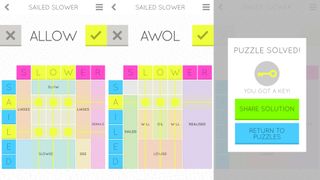
Sidewords
($2.99/£2.99/AU$4.49)
Sidewords is a word game with a new twist. Each single-screen puzzle has a grid with words along the top and left-hand edges. You use letters from those (at least one from each edge) to create each new word.
On selecting a letter, a line shoots into the grid; where lines from the left and top edges collide you get solid blocks, which display the words you create. Blocks can at any time be tapped to remove them.
The aim is to fill the grid with these blocks – simple early on, but not when you’re staring at a seven-by-seven grid annoyingly full of gaps. At that point, the devious nature of Sidewords becomes apparent.
But this game’s nonetheless also forgiving and relaxing – there’s no time limit, and the vast majority of puzzles are unlocked from the start. There’s replay value here, too, despite the static set-ups, since for each puzzle you can save a solution, clear the grid, and try to solve it in a different way.
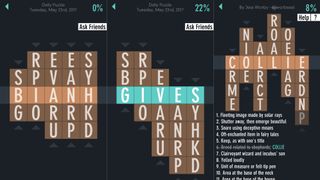
Typeshift
(free + IAP)
Games creator Zach Gage is seemingly on a mission to reimagine all those puzzle games that used to languish only in newspaper pages. With Typeshift, you get something that approximates anagrams smashed into a crossword.
But unlike on paper, the word grid here isn’t static – you drag columns to try and form words in the central row. When every letter has been used, the puzzle is complete.
For free, you get a smallish selection of puzzles, but many more are available via various IAP. If you’re at all into word games, you’re likely to devour them all.
The best of them roll another aspect of crosswords into the mix – cryptic clues. In these brain-benders, you can’t almost brute-force solutions by dragging the columns about and finding weird words – you must figure out what a clue means, eke it from the grid, and after a few of those probably go for a little lie down.
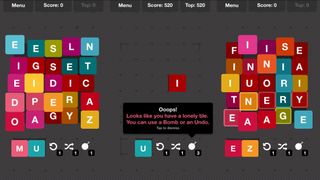
AlphaPit
($2.99/£2.99/AU$4.49)
To differentiate itself from a slew of Boggle and Scrabble clones, word game AlphaPit tries something a bit different. Although the aim is, as ever, to clear a grid of letters, there’s more to AlphaPit than simply dragging lines through the grid, making words to remove tiles.
There are bonuses, which you can use strategically, to shuffle letters, or blow to pieces a tile that’s particularly annoying you. Spare letters also lurk, which can be swapped in at an opportune moment.
Perhaps most importantly, though, AlphaPit isn’t random – instead, you get 200 predefined levels to work through. This proves rewarding, transforming the experience into a set of puzzles you know you can beat – if only you can figure out the solutions.
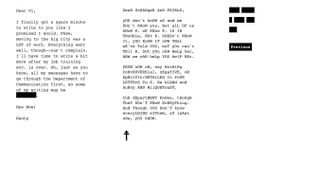
Blackbar
($2.99/£2.99/AU$4.49)
Blackbar is fundamentally a game about guessing words. Yet it’s also a chilling commentary on the dangers of a dystopian surveillance society.
The game begins with you receiving letters from a friend who’s started work at the Department of Communication. Anything from them considered controversial or negative is censored – a ‘blackbar’ – which you must correctly guess to continue.
Over the course of a number of communications, the story escalates in a frightening manner, and you find yourself feeling like you’re beating the system (man), despite ultimately just tapping in words to best a basic logic test. If nothing else, this showcases the power of great storytelling; and filling in Blackbar’s blanks feels a lot more fulfilling than chucking more hours at a run-of-the-mill Scrabble clone.
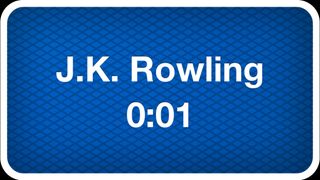
Heads Up!
($0.99/99p/AU$1.49)
Heads Up! is a digital take on the party game where you guess something written on a piece of paper clamped to your forehead on the basis of guess clues yelled out by friends. Here, though, words are housed on your iPhone’s screen, and you can blaze through many.
To get started, you select a category (several are included, and more are available to buy). During a round, you flip the screen upwards to pass or downwards when you correctly guess. At the end of your minute of glory, you’ll get a score. It’s simple, smart, effective and fun.
Current page: The best word games for iPhone
Prev Page The best sports games for iPhoneGet daily insight, inspiration and deals in your inbox
Get the hottest deals available in your inbox plus news, reviews, opinion, analysis and more from the TechRadar team.
